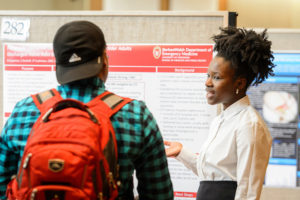 Most national selection committees expect a candidate to have a strong academic record, but the GPA is just part of the story. They want a well-rounded applicant who has broad interests, seeks out opportunities and likes challenges. So it is important to explore the full range of learning opportunities on-campus and in the community. These opportunities build credentials for nationally competitive scholarships, but more importantly, they help you make the most of your undergraduate experience.
Most national selection committees expect a candidate to have a strong academic record, but the GPA is just part of the story. They want a well-rounded applicant who has broad interests, seeks out opportunities and likes challenges. So it is important to explore the full range of learning opportunities on-campus and in the community. These opportunities build credentials for nationally competitive scholarships, but more importantly, they help you make the most of your undergraduate experience.
Research and service-learning opportunities, study abroad programs, student organizations and other extra-curricular activities enhance the knowledge you gain in the classroom, and help you decide on the educational and career path that is right for you. Engaging in any of the activities below will help get you started.
- Engage in undergraduate research in your field.
- Get work, volunteer, or internship experiences in your field.
- Take the time to get to know people like your professors, supervisors and advisors — that’s why they have office hours! This gives you the opportunity to learn from their insights and experiences, and it also helps them get to know you so they can write strong letters of recommendation.
- Seek out leadership positions in student or community organizations. Be an active contributor in areas that are important to you. Make a difference. You will find that the experience is more than a resumé builder—it’s transformative.
- Become part of a smaller learning community, whether it is in a residential college, honors program, or through small seminars and directed study with faculty.
- Study abroad; take advantage of opportunities to learn about other cultures.
- Keep up with current events.
- Take interesting and challenging courses outside your major.
- Apply for smaller awards and scholarships. They can function as building blocks to larger scholarships.
For more information on the outstanding learning opportunities available at UW-Madison visit http://learning.wisc.edu.